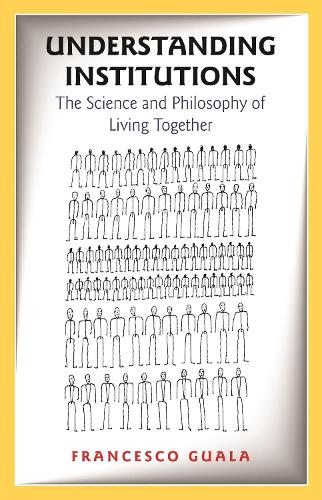
Understanding Institutions: The Science and Philosophy of Living Together
(Paperback)
Available Formats
Publishing Details
Understanding Institutions: The Science and Philosophy of Living Together
By (Author) Francesco Guala
Princeton University Press
Princeton University Press
10th January 2023
United States
Classifications
Tertiary Education
Non Fiction
Economic theory and philosophy
Social and political philosophy
306
Physical Properties
Paperback
256
Width 140mm, Height 216mm
Description
Understanding Institutions proposes a new unified theory of social institutions that combines the best insights of philosophers and social scientists who have written on this topic. Francesco Guala presents a theory that combines the features of three influential views of institutions: as equilibria of strategic games, as regulative rules, and as c
Reviews
"Winner of the 2018 Joseph B. Gittler Award, American Philosophical Association"
"Guala's book is very clearly written and well-structured. Its accessible prose makes it ideal as an introductory text. By reviewing several complex problems and offering solutions it will help further constructive debate and theoretical development. . . . [Guala] consolidates an important argument and raises additional questions that help us to move further forward. This is a great book, which should be read by every social scientist who wants to understand institutions."---Geoffrey M. Hodgson, Journal of Economic Methodology
"This is a lively work with many engaging arguments. . . . The book remains important and deserving of attention in the social ontology debates. While it is not written as a textbook, it would be very useful in the classroom. The lively prose is organized into compact chapters that close with recommended readings. Engaging this book with a group of graduate or advanced undergraduate students would be rewarding for all."---Mark Risjord, Notre Dame Philosophical Reviews
"[A] worthy and accessible book."---Joachim Wiewiura, Erkenntnis
Author Bio
Francesco Guala is professor in the Department of Economics, Management, and Quantitative Methods at the University of Milan. He is the author of The Methodology of Experimental Economics and the coeditor, with Daniel Steel, of The Philosophy of Social Science Reader.
